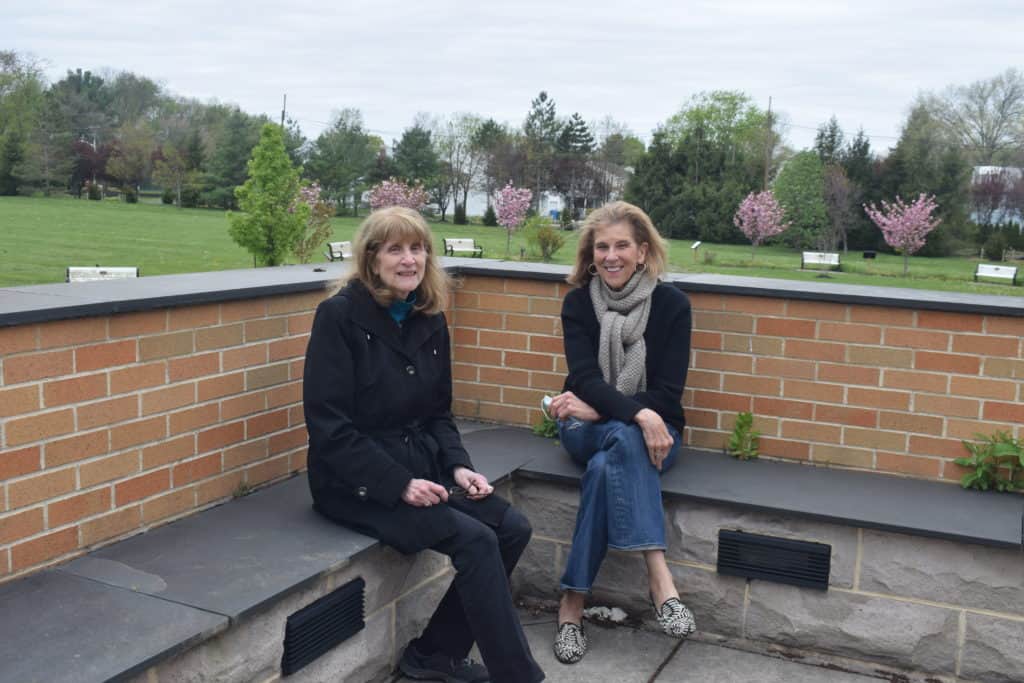

It’s no easy feat to prepare for the country’s citizenship test, but a retired teacher and an attorney are trying to make it easier.
Phyllis Levitas and Julie Kligerman are leading a free, five-week preparation course at the Cherry Hill library that is not limited to township residents. The classes take place through May 31 in the outdoor Friendship Grove behind the library.
The class was created in 2018, shortly after Levitas, who has experience teaching cognitive rehabilitation, began teaching ESOL (English for Speakers of Other Languages) classes at the library, where students expressed interest in the citizenship test. Levitas suggested to adult services librarian Elby Wang that they create a prep class.
One semester later, Levitas was joined by Kligerman, an attorney who went through ESOL training. Since then, the prep classes have been offered twice a year, once in the fall and once in the spring.
“It’s not an easy test,” Wang acknowledged.
The oral exam is made up of three parts, a civics test with 10 out of 100 possible questions about the nation’s government, history and geography; a reading test; and a writing test to show the students can read and write English.
Each week of the prep course, Kligerman reviews 15 to 20 test questions and Levitas focuses on the language skills through writing vocabulary and reading practice. The course provides materials like the 100 questions; a copy of vocabulary words for reading and writing; and a list of holidays celebrated, as is asked on the test.
The process of becoming a U.S. citizen is a costly and lengthy one. The application alone is 20 pages long, with a fee of $640 to $725 to file. According to the nonprofit Immigration Help, the average wait time for processing applications in 2020 was eight months, but the entire naturalization process on average lasts 15 months.
The federal government website notes that “non-citizens must spend at least five years as lawful permanent residents to be eligible for naturalization.”
Once it is processed, an interviewer will ask questions about an application that covers details about the candidate’s family, history and moral character. The citizenship test follows.
“You pretty much have to be consistent with your answers and you have to demonstrate that not only did you answer correctly – i.e. I’m not a habitual drunk – but you have to understand that you know what a habitual drunk means,” Kligerman explained.
Wang noted that students who graduate from the class appreciate the warmth of the teachers.
“They feel the connection with this country,” she said. “Because the teachers really, really care about them and encourage them and give them the confidence (to succeed).”
To enroll for the last four weeks of the course – it’s OK to miss the first session – visit the library’s website at https://chplnj.org/. Classes are every Tuesday from May 10 to May 24, from 5 to 6 p.m. In case of rain, sessions will move inside.
To learn more about the naturalization process, visit https://www.uscis.gov/citizenship/apply-for-citizenship.









